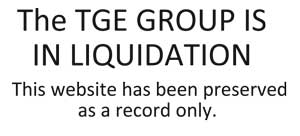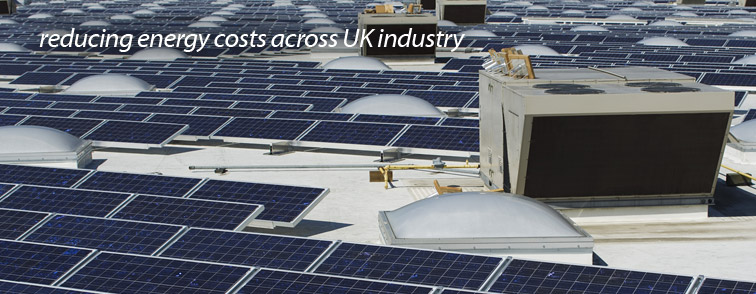What happened to the TGE Group?
TGE Group's parent company was The Green Electrician Group Limited, which was perhaps a little bit ahead of it's time. They set out to provide renewable energy using technology such as heat pumps, biomass boilers, and solar panels. Perhaps they could have succeeded if they had left it a bit longer until the energy crisis really hit, and gas supplies and electricity soared in price.
They started in business in 2009 as a private limited company with the aim of installing industrial machinery and equipment but a pointer to the future was the company's capitalisation: it was launched with just £10 in the pot. By 2010 the Royal Bank of Scotland had taken a charge on all the assets of the company, meaning that other unsecured creditors would possibly get nothing if the company became insolvent - which it eventually did. However trading seemed to be profitable at first and their 2010 accounts showed shareholder's funds to be standing at more than £90,000. By 2011, though, this had grown to nearly £328,000 and in 2012 it had reached over £2.2 million. The company recorded a loss of £336,000 though.
By 2013, however, this sum had declined to a shade under £1.8 million. By 2014 this was £1.3 million. Worse was to come: by 2015 there was another loss of £212,000 but the directors reduced overheads and said that they were confident that they would return to profit soon.
By 2016 the accounts did show a return to profit of £668,636 on a turnover of more than £11 million. The net assets were shown as £1,468,811. However this was balanced by debtors who owed the company £1,421,249. Debtors do not always pay up however, and unforseen events can cripple a company. By February of 2017 there were complaints of unpaid wages and a resolution was passed for the winding up of the company on the grounds that it could not continue in business because of it's liabilities. Wayne Harrison and Eric Wallis, of C12 Marquis Court Marquisway TVTE Gateshead NE11 0RU were appointed liquidators of the company.
The book value of the company's assets; being plant and machinery, office and computer equipment, motor vehicles, furniture and fittings, and software licences was nearly £325, 250. The total realisable value of these, however, was estimated at just £7,775. A sale was in fact agreed for the machinery (two heating systems) for £200,000; but a dispute arose and the deal looked like falling through. Eventually only a fraction of this was realised.
Book debts due to the company were estimated at £31,000 but much of this was tied up in ongoing works so less that £1,400 was actually collected.
Unsecured creditors - 52 in all - were owed just over £369,000. By the time preferential creditors and liquidator fees (at £206.60 per hour) and costs were settled there was likely to be little or nothing left for these unfortunates.
By 14/07/2021 The company was dissolved.
Call our energy experts today on 0845 643 2528 or send us an online enquiry to discuss your requirements in more detail.
@TGEgroup












